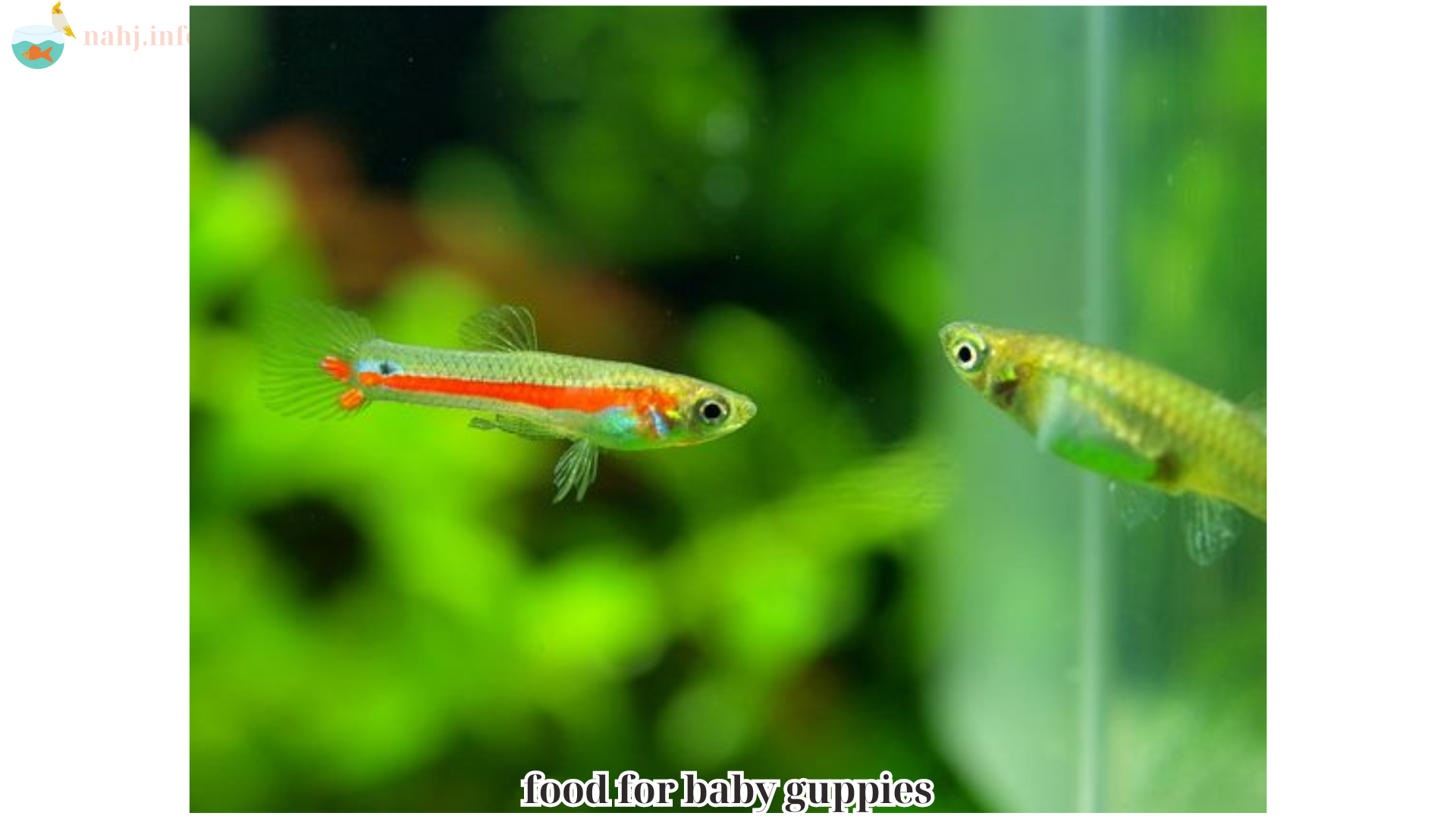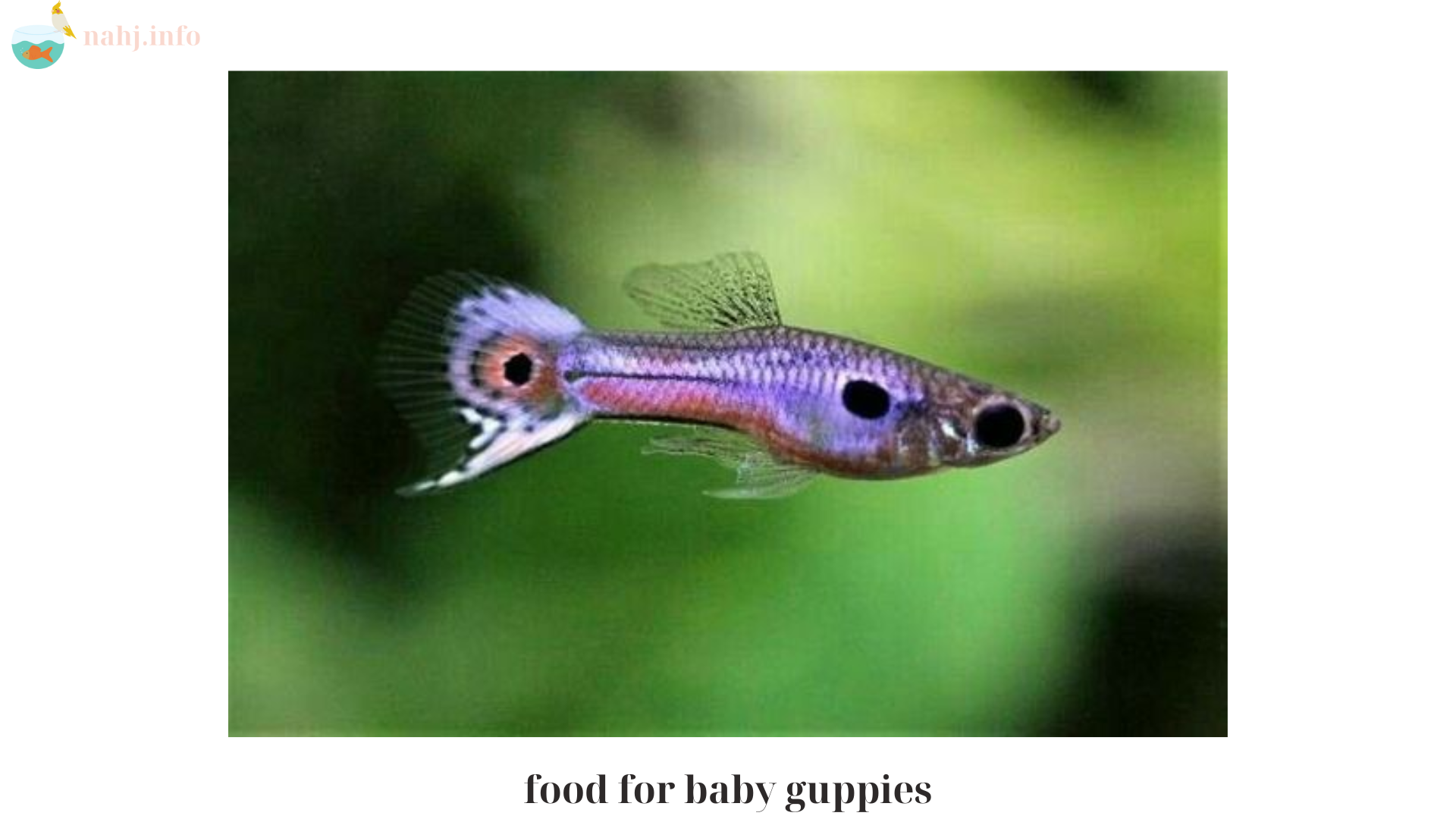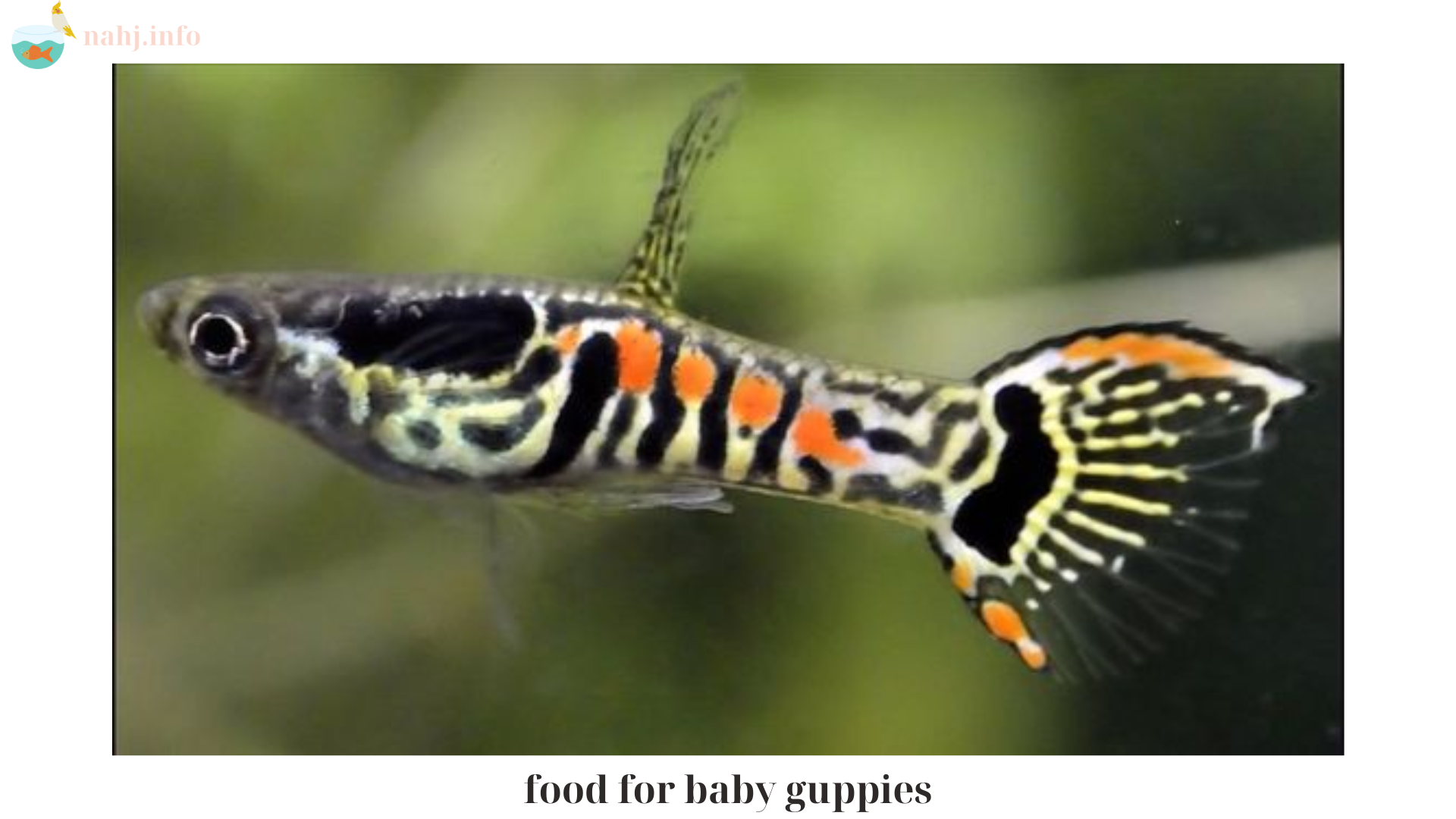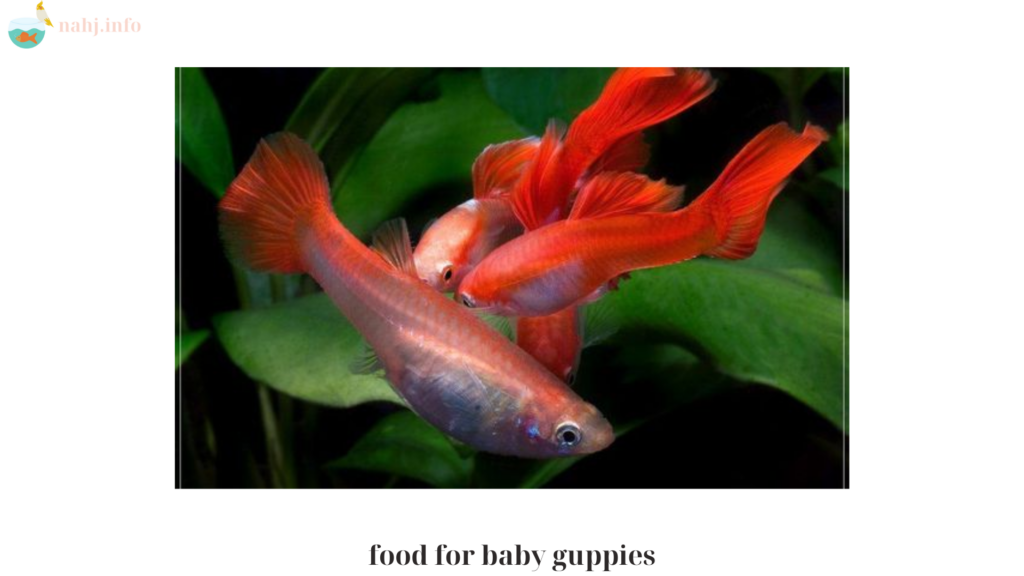Feeding baby guppies (also known as fry) properly is crucial for their healthy growth and development. Baby guppies have specific nutritional needs that differ from adult guppies, and providing the right food can significantly impact their survival and overall health. In this comprehensive guide, Nahj will explore the best foods for baby guppies, feeding schedules, and tips to ensure your fry thrive.
Table of Contents
ToggleUnderstanding Food for Baby Guppy Nutrition

Baby guppies require a high-protein diet to support their rapid growth and development. In the wild, guppy fry feed on small aquatic organisms, algae, and organic matter. In an aquarium setting, replicating this natural diet can be challenging but not impossible. The key is to provide a variety of nutrient-rich foods that are appropriately sized for their small mouths.
Best Foods for Baby Guppies
1. Commercial Fry Food
Commercial fry food is specially formulated to meet the nutritional needs of baby fish. These foods are high in protein and contain essential vitamins and minerals to support healthy growth. They come in different forms, such as flakes, pellets, and powdered food, making it easy to choose the right size for your fry.
2. Brine Shrimp
Brine shrimp are one of the best foods for baby guppies. Newly hatched brine shrimp (nauplii) are the perfect size for fry and are rich in protein and other essential nutrients. You can purchase brine shrimp eggs and hatch them at home, providing a continuous supply of fresh food for your fry.
3. Microworms
Microworms are another excellent live food option for baby guppies. They are small, easy to culture, and highly nutritious. Microworms wriggle in the water, enticing the fry to eat and providing a great source of protein.
4. Infusoria
Infusoria are tiny aquatic organisms that are ideal for very young fry. You can culture infusoria at home by using a jar of water with some organic matter, such as a piece of vegetable or a banana peel. After a few days, the water will be teeming with infusoria, which you can feed to your baby guppies.
5. Egg Yolk Paste

Egg yolk paste is a nutritious homemade food option for baby guppies. To make it, hard boil an egg, remove the yolk, and crush it into a fine paste. You can dilute the paste with a little water to make it easier for the fry to eat. Egg yolk is rich in protein and essential nutrients, making it an excellent supplement to their diet.
6. Crushed Flake Food
While adult guppy flakes are too large for fry, you can crush them into a fine powder to make them suitable for baby guppies. This can be a convenient and readily available option, but it should be supplemented with other high-protein foods to ensure balanced nutrition.
Feeding Schedule for Baby Guppies
Baby guppies have small stomachs and fast metabolisms, so they need to eat frequently. During the first few weeks of life, it’s essential to feed them small amounts of food several times a day. Here’s a suggested feeding schedule:
First Week
- Frequency: 4-6 times a day
- Portion Size: Small enough that they can consume it within a few minutes
- Food Types: Infusoria, brine shrimp nauplii, egg yolk paste
Second to Fourth Week
- Frequency: 3-4 times a day
- Portion Size: Small portions that are consumed within a few minutes
- Food Types: Brine shrimp, microworms, commercial fry food, crushed flake food
After One Month
- Frequency: 2-3 times a day
- Portion Size: Small to moderate portions
- Food Types: A varied diet including brine shrimp, microworms, commercial fry food, and crushed flake food
As the fry grow and their nutritional needs change, you can gradually reduce the feeding frequency and increase the portion size.
Tips for Feeding Baby Guppies
Maintain Water Quality
Overfeeding can lead to poor water quality, which can be detrimental to the health of your fry. Uneaten food can decompose and produce harmful toxins. To avoid this, feed small amounts and remove any uneaten food promptly. Regular water changes are also essential to keep the water clean and healthy.
Monitor Growth and Health
Keep an eye on the growth and health of your baby guppies. Healthy fry should be active, with clear eyes and well-formed bodies. If you notice any signs of illness or stunted growth, reassess their diet and feeding schedule.
Provide a Varied Diet
A varied diet ensures that your baby guppies receive all the essential nutrients they need for optimal growth. Combining different food types, such as live foods and commercial fry food, can provide a balanced diet.
Use Feeding Rings or Syringes
Using feeding rings or syringes can help concentrate the food in one area, making it easier for the fry to find and eat the food. This can also help minimize food waste and maintain water quality.
Gradually Transition to Adult Food

As the fry grow, gradually introduce them to adult guppy food. Start by mixing a small amount of crushed adult flakes or pellets with their usual fry food. Over time, increase the proportion of adult food until they are fully transitioned.
Conclusion
Feeding baby guppies the right food in the correct quantities is essential for their healthy growth and development. By providing a high-protein, varied diet and maintaining proper feeding practices, you can ensure your fry grow into healthy, vibrant adult guppies. Remember to monitor their growth, maintain water quality, and adjust their diet as they mature. With the right care and attention, your baby guppies will thrive and bring joy to your aquarium for years to come.
Related Posts:
- The Oriental Shorthair Cat: A Comprehensive Guide
- How to Raise Guppies Without Dying: A Comprehensive Guide
- Blue Striped Fish: A Vibrant Addition to Your Aquarium
- Detailed Guide to Goldfish Food: How to Choose and…
- What Do Starlings Eat? A Comprehensive Guide
- The European Shorthair: A Comprehensive Guide

